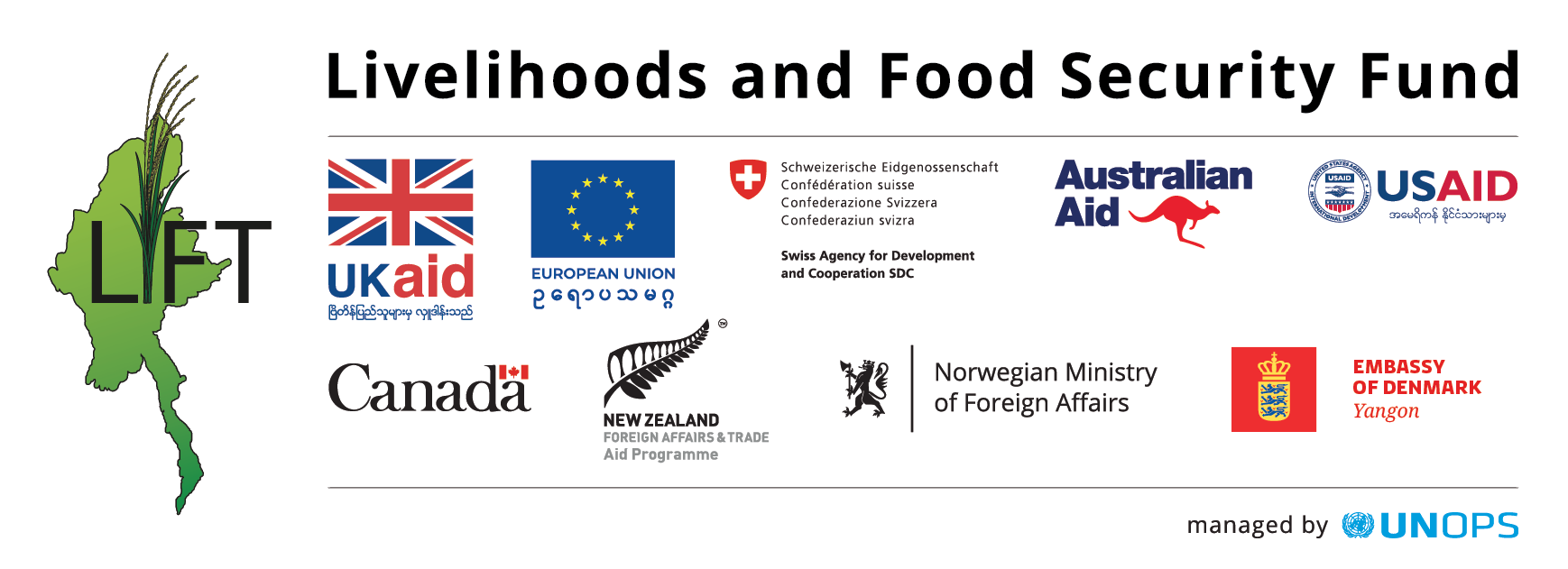
National and international development experts met last week to review LIFT’s Village Development Programme (VDP) and how it may fit within Myanmar’s local governance reform agenda. Representatives of development partner organisations and implementing agencies, together with Myanmar civil society representatives (CSOs), participated in the VDP workshop in Yangon on Tuesday, 26 March, when they discussed how the programme, and other possible models, might work best in Myanmar’s local context.
Daw Nyo Nyo Win, Deputy Director General of Department of Rural Development (DRD) opened the workshop. She set the tone of the day by saying: “The Village Development Programme is very useful because the involvement of many departments working closely together is crucial for development and improving the conditions for rural people. These programmes are instrumental to build institutional capacity.”
 Brett Ballard, LIFT’s Policy Specialist, observed: "The sustainability of any VDP model is more than just convening meetings and workshops and issuing policy briefs; rather, it is more about linking such concepts and methodologies to the broader development context. Situating the VDP model within the context of local governance reform can help make it more sustainable."
Brett Ballard, LIFT’s Policy Specialist, observed: "The sustainability of any VDP model is more than just convening meetings and workshops and issuing policy briefs; rather, it is more about linking such concepts and methodologies to the broader development context. Situating the VDP model within the context of local governance reform can help make it more sustainable."
LIFT Technical Assistance team leaders, Shafique Rahman and U Kyaw Naing, presented their findings, experiences and learnings from the programme, and made recommendations about how to scale up the model nationally. They also answered questions from the participants, ranging from how the programme addresses gender equality and equal representation, conflict affected areas, and budgeting.
LIFT’s development partners and implementing agencies, including ActionAid Myanmar, HelpAge and Mercy Corps, also presented lessons learnt from their implementation experiences from the field. The participants discussed the similarities and differences of approach between the implementing partners. For example, HelpAge focuses on the elderly, while Mercy Corps is planning further work to involve women more efficiently in the village decision-making process. The participants highlighted the importance of not complicating each other’s work by inadvertently duplicating decision-making structures, while aiming to work within existing ones.
During the afternoon session, Asia Foundation, Centre for Good Governance (CGG), Oxfam and Pact outlined their research findings and identified technical, practical and policy issues in local governance, including village development and township budgeting. The importance of cross-agency coordination was underlined by everyone and during the question and answer session some vital considerations were discussed, such as gaining the trust of Government and village representatives. The speakers emphasised trust building and how time consuming, but important, it is. CSOs were urged to focus on how they add value when dealing with Government.
Of particular importance was the fact that the presentations and the question and answer sessions throughout the day identified village planning as both a technical process as well as a socio-political process.


